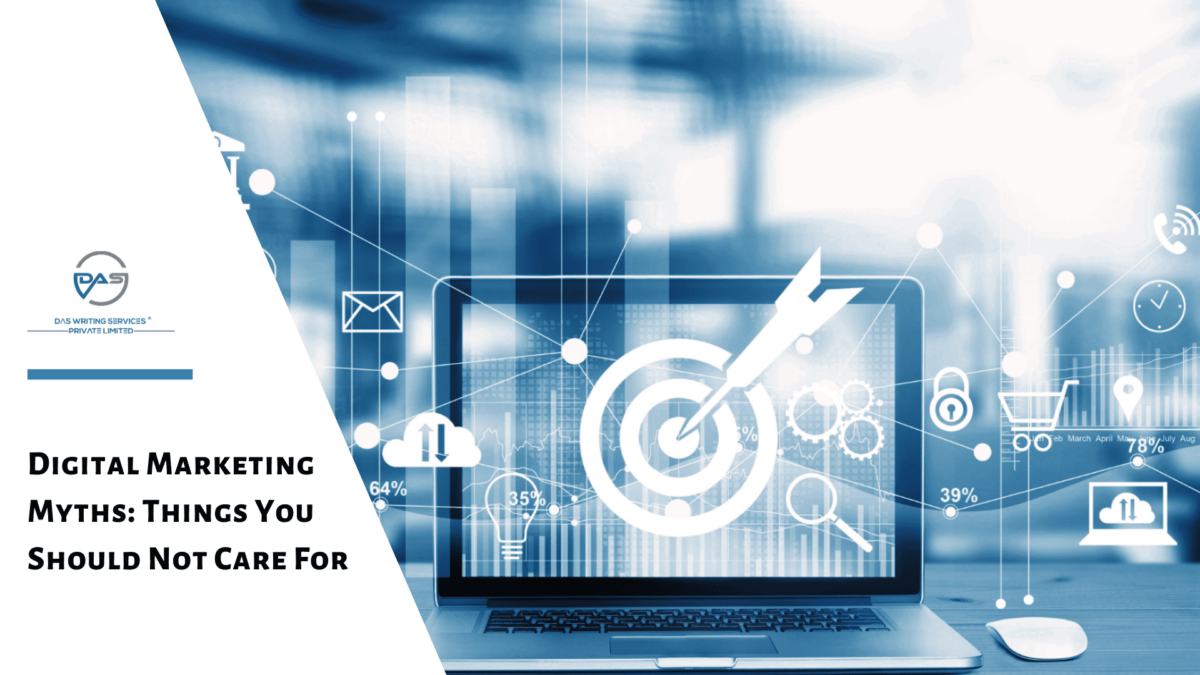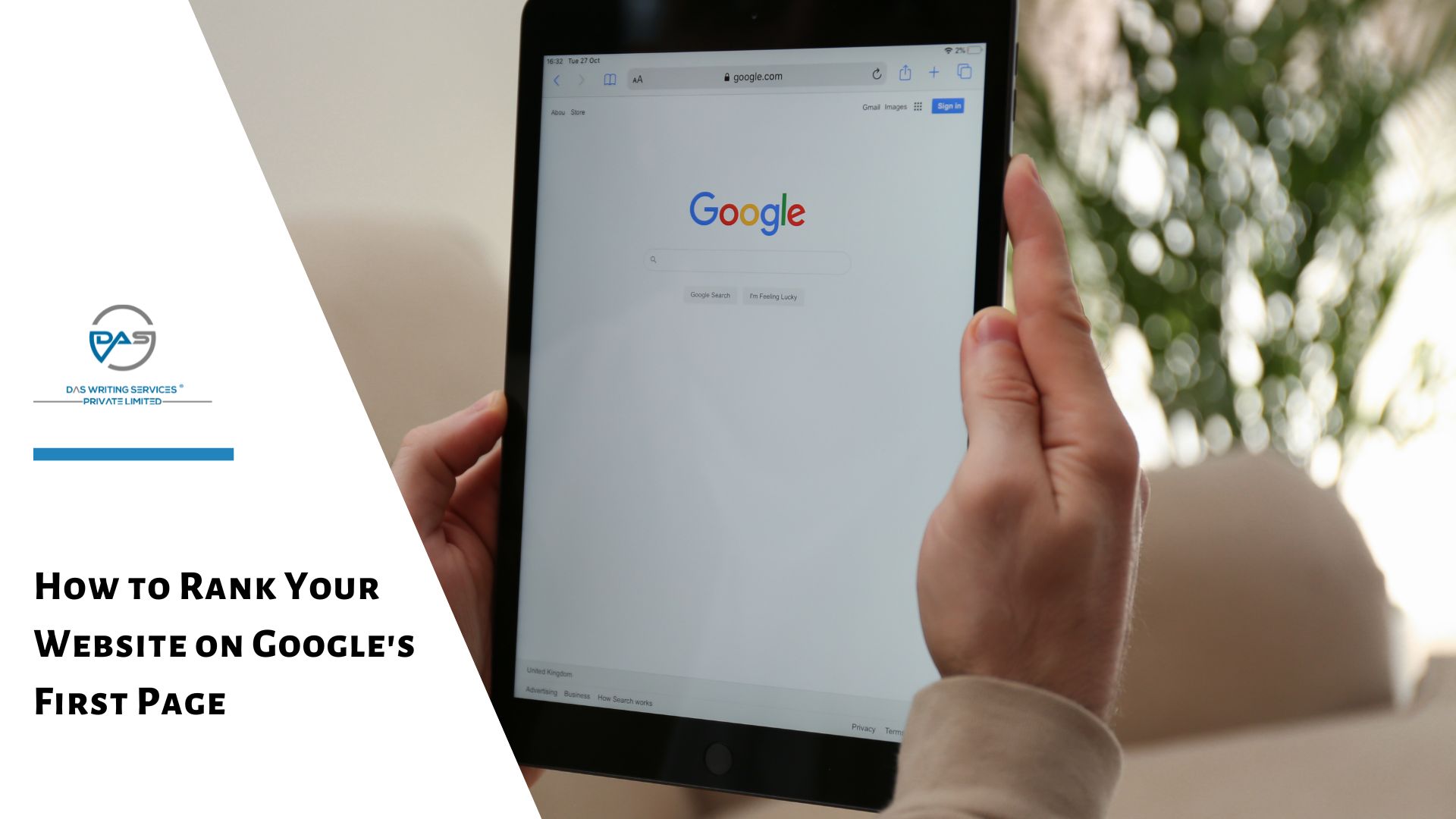Did you know an average local business puts 5-10% of its revenue towards its digital marketing budget, but for larger businesses, that number can climb to about 14%?
In the ever-evolving world of digital marketing myths and misconceptions are present in a large number which often lead businesses astray in their marketing strategies.
As technology and consumer behaviour continue to evolve, it becomes crucial to separate fact from fiction.
In this article, we debunk some of the most prevalent digital marketing myths, shedding light on the truth and empowering businesses to make informed decisions in their online marketing endeavours.
You can learn about what is digital marketing and what is the role of content writing in digital marketing. We have also curated a table of contents below so that you can access the different sections of the blog according to your liking easily.
What is Digital Marketing?
Well before you know what are some of the common digital marketing myths, you must also know what digital marketing is.
Digital marketing refers to the strategic utilisation of various online platforms, technologies, and channels to promote products, services, or brands, with the ultimate goal of reaching and engaging a targeted audience. This dynamic and ever-evolving field encompasses a wide range of tactics, such as search engine optimisation (SEO), content marketing, social media marketing, email marketing, pay-per-click (PPC) advertising, and more.
Through the expert application of these techniques, businesses can enhance their online visibility, attract potential customers, and build lasting relationships with their clientele. Moreover, digital marketing empowers organisations to analyse campaign performance and consumer behaviour, enabling them to make data-driven decisions for continuous improvement.
Embracing the power of the digital realm, digital marketing has emerged as a non-replaceable component of modern-day marketing strategies, revolutionising the way businesses connect with their audiences in the digital age.
9 Common Digital Marketing Myths You Should Not Pay Heed
Below mentioned are a few of the most prevalent digital marketing myths that you should ignore:
Myth 1: “Digital Marketing is Only for Large Businesses”
Contrary to popular belief, digital marketing is not exclusive to large corporations with deep pockets. In fact, it provides a level playing field for businesses of all sizes. Thanks to the internet and social media platforms, even small businesses can reach their target audience effectively and at a fraction of the cost of traditional advertising. With strategic planning, content creation, and targeted campaigns, businesses can achieve significant growth and brand awareness without breaking the bank.
Myth 2: “Social Media Presence Guarantees Instant Success”
One of the most common digital marketing myths is this one. While having a strong social media presence is essential for modern businesses, expecting instant success is unrealistic. Building a meaningful following and engaging with potential customers takes time and consistent effort. It’s vital to establish a credible brand persona, curate valuable content, and interact genuinely with the audience. Over time, these efforts will yield a loyal customer base and, subsequently, increased sales and brand loyalty.
Myth 3: “SEO is Dead, and Content Marketing is All That Matters”
The belief that Search Engine Optimisation (SEO) is no longer relevant couldn’t be further from the truth. SEO remains a vital component of digital marketing, ensuring that your website and content are visible to search engines and users alike. While content marketing plays a significant role in driving traffic and engagement, neglecting SEO can hamper your efforts. A balanced approach that combines high-quality content with well-optimised web pages will yield the best results. We have written a blog separately on content writing tools for SEO, you can go through it for a detailed overview.
Myth 4: “Email Marketing is Spammy and Ineffective”
Are you also a victim of this digital marketing myth? Some sceptics dismiss email marketing as outdated and spammy, but the reality is quite the opposite. Email marketing remains one of the most effective ways to nurture leads, retain customers, and drive conversions. When executed thoughtfully, with personalised and relevant content, email campaigns can yield impressive results. A well-segmented email list and targeted messaging can significantly improve open rates, click-through rates, and overall engagement.
Myth 5: “Negative Comments Should Be Deleted”
Businesses often feel tempted to remove negative comments and reviews from their social media pages or websites, fearing they may tarnish their reputation. However, addressing negative feedback transparently can actually enhance your brand’s credibility. Responding to dissatisfied customers in a respectful and empathetic manner demonstrates that your business cares about its customers and is willing to make amends. It also provides an opportunity to showcase your commitment to customer satisfaction. So, you should definitely not pay attention to this digital marketing myth.
Myth 6: “Digital Marketing is Set-and-Forget”
A common misconception is that digital marketing campaigns can be launched and then left to run on autopilot. In reality, digital marketing requires continuous monitoring, analysis, and adaptation. Consumer preferences, online trends, and algorithms change constantly, necessitating a dynamic and flexible approach to marketing. Regularly analysing data and making data-driven adjustments to your strategies will ensure optimal performance and long-term success.
Myth 7: “Paid Advertising is the Only Way to Succeed”
While paid advertising can deliver quick results, relying solely on it can be costly and unsustainable, especially for small businesses. Organic growth through content marketing, social media engagement, and SEO can be equally effective in driving traffic and conversions. By creating valuable, shareable content and building a loyal community around your brand, you can enjoy sustained growth without solely depending on paid advertising.
Myth 8: “Mobile Optimisation is Unnecessary for B2B Businesses”
Some B2B (business-to-business) companies may believe that mobile optimisation is not crucial for their marketing efforts since they primarily target other businesses rather than individual consumers. However, this assumption overlooks a significant trend in B2B purchasing behaviour. Research shows that an increasing number of decision-makers use mobile devices to research and make purchasing decisions. Neglecting mobile optimisation can lead to a poor user experience, high bounce rates, and missed opportunities to connect with potential clients. B2B businesses must prioritise mobile responsiveness to ensure their website and marketing materials are accessible and visually appealing across various devices.
Myth 9: “Marketing Automation Replaces Human Interaction”
With the rise of marketing automation tools, some marketers may fall into the trap of thinking that automation can replace genuine human interaction. While automation can streamline repetitive tasks, such as email sequences and social media posting, it cannot fully replace the value of authentic human engagement. Building strong relationships with customers requires personalised communication, empathy, and understanding of their unique needs. Striking the right balance between automated processes and the human touch is vital for creating meaningful connections and fostering brand loyalty. Marketers should use automation to enhance their efforts and free up time for more personalised interactions, not as a complete substitute for human interaction.
What is the Role of Content in Digital Marketing?
The role of content in digital marketing is central and critical to the success of any online marketing strategy. Content serves as the foundation upon which all other digital marketing elements are built. It plays a multifaceted role in engaging, attracting, and nurturing the target audience, as well as establishing a brand’s authority and credibility in the digital landscape. Here are some key roles of content in digital marketing:
1. Audience Engagement
Compelling and valuable content captures the attention of the target audience. It can be in the form of blog posts, articles, videos, infographics, social media posts, and more. Engaging content sparks interest, encourages interactions, and motivates users to explore further.
2. Search Engine Optimisation (SEO)
High-quality and relevant content is a vital factor in SEO. Search engines prioritise websites that offer valuable information to users. By creating well-optimised content, businesses can improve their search engine rankings, leading to increased organic traffic and visibility. Finding out keywords from free keyword research tools like ahrefs, can boost your digital marketing strategy.
3. Lead Generation
Content marketing is an effective way to attract and convert leads. By offering valuable content, such as ebooks, whitepapers, or webinars, businesses can entice visitors to provide their contact information and become leads.
4. Brand Awareness
Informative and shareable content helps expand a brand’s reach and visibility. When users find content valuable, they are more likely to share it with their networks, thus increasing brand exposure.
5. Establishing Authority and Trust
In-depth and informative content showcases a brand’s expertise and authority in its industry. When businesses consistently provide valuable insights and solutions, they gain trust and credibility among their audience.
6. Customer Education
Content can be used to educate customers about products, services, and industry trends. Educated customers are more likely to make informed decisions, leading to higher customer satisfaction and loyalty.
7. Social Media Engagement
Engaging content is fundamental to successful social media marketing. By creating content that resonates with the audience, businesses can foster interactions, discussions, and social sharing. You can use platforms like Linkedin and Facebook to create content for your website.
8. Lead Nurturing
Content plays a crucial role in nurturing leads through the sales funnel. Different types of content cater to the needs of prospects at various stages of the buying journey, moving them closer to making a purchase.
9. Customer Retention and Advocacy
Content marketing is not solely about attracting new customers; it also helps in retaining existing ones. Valuable content keeps customers engaged and encourages them to become brand advocates, referring others to the business.
10. Data Collection and Analysis
Content performance metrics provide valuable insights into audience preferences and behaviours. Analysing content data allows businesses to refine their marketing strategies and create even more effective content.
Content is the backbone of digital marketing. It serves as a powerful tool to engage, educate, and build relationships with the target audience, while also driving brand awareness, lead generation, and customer loyalty. Businesses that prioritise high-quality content as part of their digital marketing efforts are better positioned to thrive in the competitive online landscape.
By dispelling these common digital marketing myths, businesses can now approach their online marketing endeavours with a clearer understanding of what works and what doesn’t. Embracing a balanced approach that combines various digital marketing strategies will help businesses foster meaningful connections with their audience, boost brand awareness, and ultimately achieve their marketing goals in the digital landscape. Remember, staying up-to-date with industry trends and continuously adapting your strategies is key to staying ahead in the competitive world of digital marketing.
FAQs
1. Is digital marketing expensive?
Digital marketing can be tailored to suit different budgets, making it flexible and cost-effective. It allows businesses to adjust their spending based on performance and goals. So, this is also a common digital marketing myth that people have.
2. Is digital marketing only for big businesses?
No, digital marketing is beneficial for businesses of all sizes. It provides cost-effective and measurable marketing solutions, making it accessible to small and medium-sized enterprises as well.
3. Can digital marketing deliver quick results?
While digital marketing can yield faster results compared to traditional marketing, it’s not an instant fix. The timeline for seeing significant results depends on factors such as the marketing strategy, industry, and target audience.
4. Do I need a website if I have a strong social media presence?
Having a website is crucial as it acts as your digital storefront, providing more in-depth information about your business and offerings. Social media handles like Instagram and Facebook can complement your website but not replace it.





Leave a comment